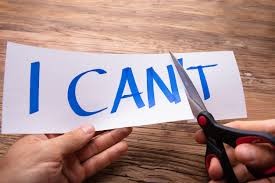Leisure Education Perspectives
Jeff Witman, Ed.D, CTRS
Many recreation professionals get involved with leisure education with their program participants. This article focuses on providing context for these efforts. While the content, format and structure of leisure education efforts may vary the desired outcome typically involves empowerment and attitude adjustment.

One of my father’s favorite songs, which frequently was the background music for our suppers, can perhaps summarize the intent of leisure education programming. The song is the Guy Lombardo standard “Enjoy Yourself, It’s Later Than You Think” with its reminder that the “years go by as quickly as a wink.” So often we meet people who are or find themselves in, a rut of living for tomorrow, be it the weekend or vacation, or that illusory paradise – retirement. Sacrifices of time, resources, relationships, and opportunities for enjoyment are inherent in this mindset. Unrealistic expectations of our “future fun” may cause disenchantment when these experiences finally do arrive and fail to match our dreams of them. Like the bored elementary schooler who can’t believe that the bell ending recess is ringing so soon, our greatest frustration may come with the realization that all our sacrifices were for something so transitory. The alternative – infusion of the spirit and experiences of leisure in our everyday lifestyles can be a difficult proposition. Habits are difficult to break.
Among the most challenging habits or attitudes we confront in working with people in leisure education are:
- the sense of resigned helplessness, of feeling controlled by people or environment or circumstances which the person controlled, sees no hope of changing;
- the sense of ennui, of being bored and tired and tired of being bored and bored with being tired and tired and bored of thinking how tired and bored we are and generally on a spiral in which everything becomes boring, tiring, or both (Stan Grabowski has described this as “dead from the skin in”);
- the sense of aloneness, of being the only one unable to find pleasure in leisure, or make friends, or serve a pickleball over the net, or feel guilty about playing;
- the sense of being superfluous, of literally killing time with one’s life, of not being a part of the big or any pictures, of having no legacy except perhaps the desire of others to not be like you;
- the sense of complacency, smugness, and self -satisfaction with a lifestyle that even the casual observer can identify as not what it could be or even as harmful.
Keys to successful leadership of leisure education efforts include nurturance and support. Nurturance requires that leaders identify what participants need and want and then provide emotional and physical support- information, empathy, feedback and assistance.
Leisure education succeeds to the extent that it allows individuals to reject negative attitudes and initiate habits that reinforce this rejection. Relatively modest trials of this exist within the sheltered environments in which we conduct programs. The real test of individuals’ commitment to change comes in the real world. Without a supportive facilitator or group, people face their actual ability to evidence a changed lifestyle. Their success, it seems, relates in part to the attitude that the leisure education experience leaves them with. It is probable that an enhanced sense of self-empowerment, the ability to both identify and solve problems and the willingness to set goals and try new things (view the clip below) is the critical legacy of involvement with leisure education programming.
